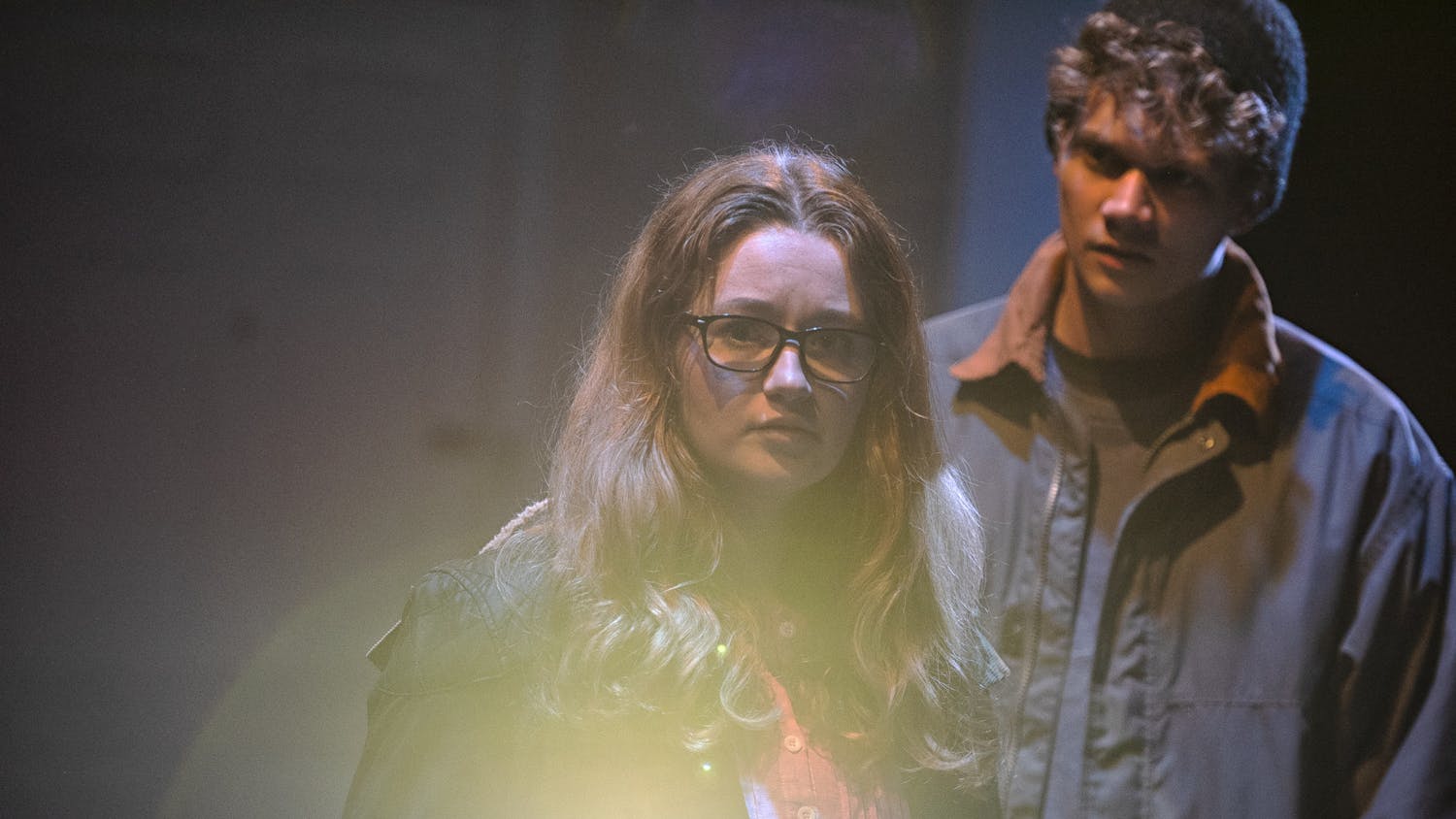Two major problems of rhetoric occur when a contemporary director chooses to put on a Shakespeare play. One problem concerns the comedy itself; what an audience found funny 400 years ago may fall flat today. But, surprisingly, this particular issue rarely plagues Professor of Theater and Women’s Gender Studies Cheryl Feraone’s As You Like It. A mix of Ben Orbison’s ’13 well-timed physical humor as Touchstone and Christina Fox’s ’13.5 intentionally over-articulated lines as Rosalind served to enliven a cliché comedy.
The second rhetorical problem (and this unfortunately presented greater, though not crippling problems for this performance) concerns the language. No matter how well the actors speak and understand the lines, an unfamiliar audience must pay extraordinary attention in order to understand plot and jokes. Despite these actors’ competent locution of Shakespeare’s English — Sarah Lusche ’13 as Celia performed particularly well in this regard, speaking the lines with both fluency and comprehension — demanding this extra attention for two and a half hours seemed excessive, especially for a generation and audience so accustomed to constant entertainment. Here, I do not condemn difficult and time consuming works of art; rather, I expect a greater reward at the end of such work. And quite frankly, Shakespeare’s often-interchangeable comedies do not quite provide that recompense.
The plot of the comedy involves brotherly conflict, an exiled Duke, a court-and-forest opposition, a woman dressing as a man and a ridiculous amount of marriages. Sound familiar?
The strengths of this solid performance did not lie in plot. Nor did they lie in an artistic unity of set, plot and costumes. The set of this rendition struck me as rather beautiful in its simplicity: an abstract single metal chair that changed, later, to a swing, and scores of white umbrellas floating from the ceiling jellyfish-like, reminiscent of Magritte paintings. But this design unfortunately added nothing to the thematic interpretation and was, at times, dazzling to the point of total distraction from the play.
This went double for the fascinating costumes, co-designed by Artist-In-Residence Jule Emerson and Annie Ulrich ’13. The beautiful three-piece suits, vintage dresses and capes all suggested an early 1900s Edwardian silhouette, but, again, this had nothing to do with the plot. They were, however, impressive. All of the costumes adhered strictly to a palate of beige, cream and brown, with dark green and copper accents, but somehow they seemed elegantly profuse, a kind of bland near-decadence that was unified rather than needlessly restricted by the colors. For such a limited color scheme, the sheer abundance of various outfits was miraculous.
But it is too bad that more was not done to marry the text of a comedy with World War I and Dada costume and set design; post WWI disillusionment cannot and does not speak with what is fundamentally, by definition, a comedy.
Speaking of dissonance, one should also note the unnecessary plethora of singsong in this play. Moments when characters suddenly broke into dance or song felt divorced from the play, separate in an almost alien-like manner. Aside from this being highly confusing, I found the singsong pointless, never once working with the notion of revelry which we are supposed to feel in the forest scenes. And how, I ask, can one take singsong seriously in a play anymore? Television has satirized this to a point at which it’s impossible to enjoy it smirklessly. This criticism comes despite, again, formal beauty in the singing, and a stunning orchestration of such a large group of people.
What did hold the play together, though, were some of the smaller details: Oliver de Boys’s (Teddy Anderson ’13.5) eerily realistic black eye and dirtied suit, the blood on Orlando de Boys’s (Jake Connolly ’13) arm and the acting itself. Although Fox seemed to struggle in the early scenes to find a way to match her words with her actions, her later scenes, often when paired opposite Connolly, were riveting, funny and tension-filled. Fox had a way of suddenly and dynamically switching from romantic and swooning to formal and reserved that fit her character perfectly. Connolly played his part, reacting to such dynamics, with sincerity and believability to counter her volatility.
That is not to mention Daniel Sauermilch’s ’13 sassy, haughty interpretation of Duke Senior, which was unexpected and somehow perfect. Orbison’s Touchstone, mentioned surpa, was also unexpected, funny not just in lines but in body humor. Though Touchstone became shrill at times, Orbison’s physical humor, particularly mimicking Charles the Wrestler, was masterful.
All the World's a Stage: As You Like It
Comments



